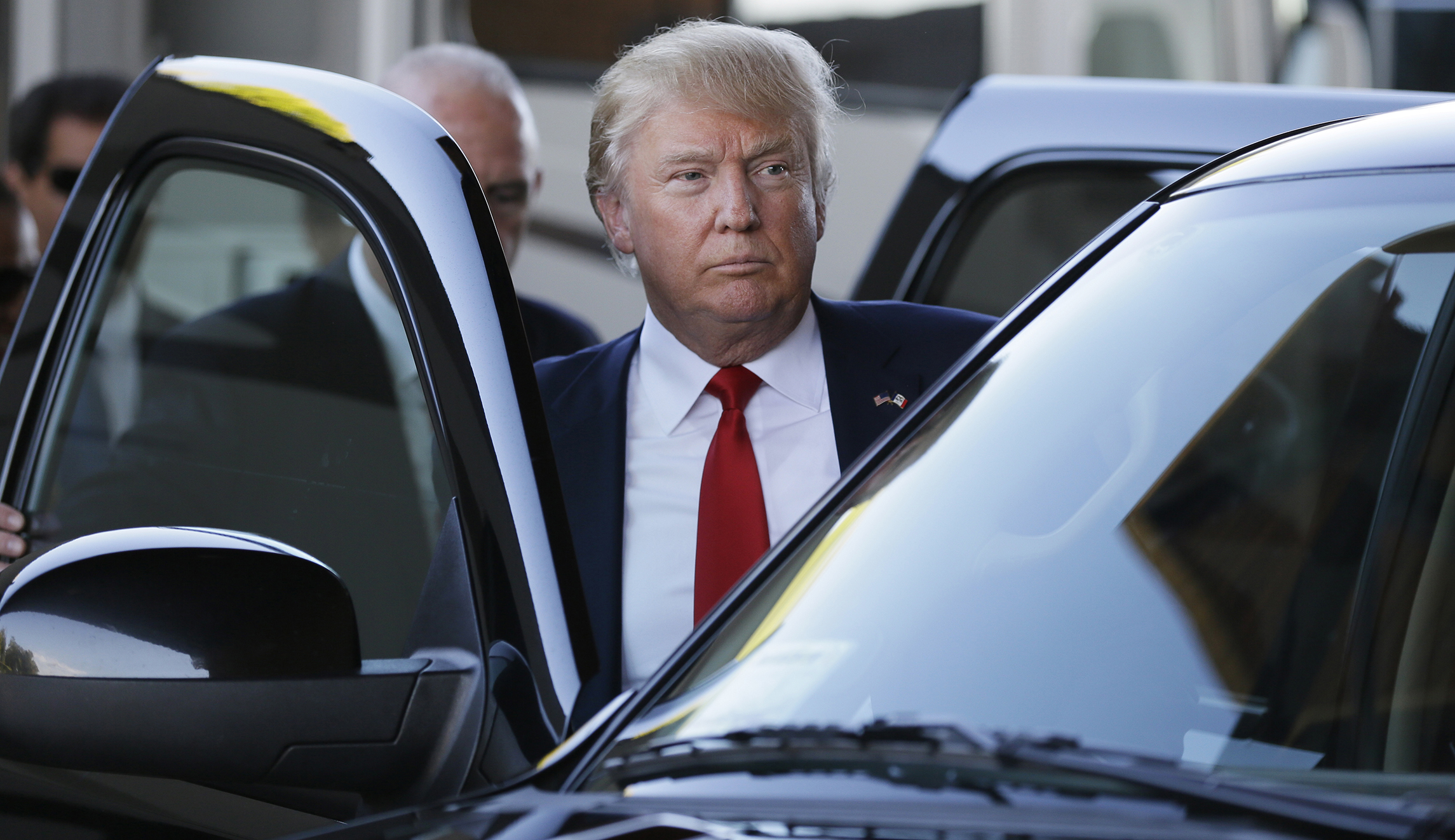Former President Donald Trump declined to answer questions during his deposition before New York Attorney General Letitia James’s office Wednesday, prompting legal experts to speculate the risks of pleading the Fifth Amendment over a civil investigation into his business practices.
James has overseen a nearly three-year investigation into whether Trump’s real estate company violated New York tax laws. On Wednesday, Trump decried it as “a disgrace to the legal system,” asserting that he “did nothing wrong.”
While Trump’s refusal to answer questions could prevent any criminal liability brought as a result of James’s investigation, legal experts, including Vermont Law School professor Jared Carter, told the Washington Examiner that his decision to remain silent could be used against him if the state’s attorney general files any lawsuits against him or his company as a result of the investigation.
TRUMP SAYS HE ‘DECLINED TO ANSWER’ QUESTIONS DURING NY AG DEPOSITION

“The privilege Trump is asserting does not prevent New York prosecutors from finding the same evidence elsewhere so, as is the case with many criminal prosecutions, the state can go elsewhere for evidence to support their case,” Carter said, referring to a parallel criminal investigation into Trump’s organization led by Manhattan District Attorney Alvin Bragg.
The law professor added that the Trump Organization, which is involved in the investigation, “remains vulnerable” because corporations cannot be protected by the Fifth Amendment.
“So it really can’t be used to avoid turning over business documents and assets for evidence,” Carter said.
Although Bragg’s investigation slowed its pace earlier this year, the Manhattan district attorney told CNN in April that any testimony provided in James’s investigation would be equally examined.
“Anytime you have a parallel civil, criminal investigation, if there’s testimony in that proceeding, obviously, we will look at it,” Bragg said.
Some legal experts have argued if Trump is sued by James and the case goes to trial, the former president’s silence could expose him to negative inferences by a jury that could result in a higher judgment against him if he is found liable. However, answering any questions could also leave Trump open to civil and criminal liability.
“Trump has good legal standing to invoke his [Fifth Amendment rights] in James’s civil investigation,” Rita Mkrtchyan, a senior defense attorney and the director of equity alliance at Oak View Law Group, told the Washington Examiner.
Since the former president is also the subject of Bragg’s parallel investigation, Mkrtchyan said if she were the former president’s lawyer, “I would also advise him against answering questions,” as anything he says could be used against him in the other investigation.
Still, she contended Trump’s silence “is not looking good for the court of public opinion.”
The Fifth Amendment ensures that people are not forced to incriminate themselves.
But you don’t take the Fifth if you didn’t do anything wrong. https://t.co/xIKupKNMSo
— Daniel Goldman (@danielsgoldman) August 10, 2022
Democratic attorney Daniel S. Goldman, who served as lead majority counsel in the first impeachment inquiry against Trump and lead counsel to House managers in his second impeachment trial, tweeted Wednesday, “You don’t take the Fifth if you didn’t do anything wrong.”
But for Carter, Goldman’s assessment is only partially right.
“The Fifth Amendment doesn’t talk about civil, it talks about criminal. So it’s appropriate in a civil context to infer whatever the trier of fact wants,” Carter said, noting that the Supreme Court has said that in a criminal context, a jury can’t infer someone is guilty by pleading the Fifth Amendment.
Carter added that taking the Fifth Amendment in a civil context doesn’t eliminate the burden for prosecutors of proving their case to a reasonable likelihood, “but it is something that the jury can take into consideration when it’s looking at whether or not individuals are guilty of whatever the civil violation is.”
James said in January that her office found “significant” evidence to support Trump’s organization posted false and misleading asset valuations in its financial statements to gain access to insurance and tax benefits as well as loans.
CLICK HERE TO READ MORE FROM THE WASHINGTON EXAMINER
Although Trump has previously criticized those exercising their right to remain silent, once saying that “the mob takes the Fifth,” the former president’s entanglement in parallel investigations in the Empire State likely left him with few other alternatives.
